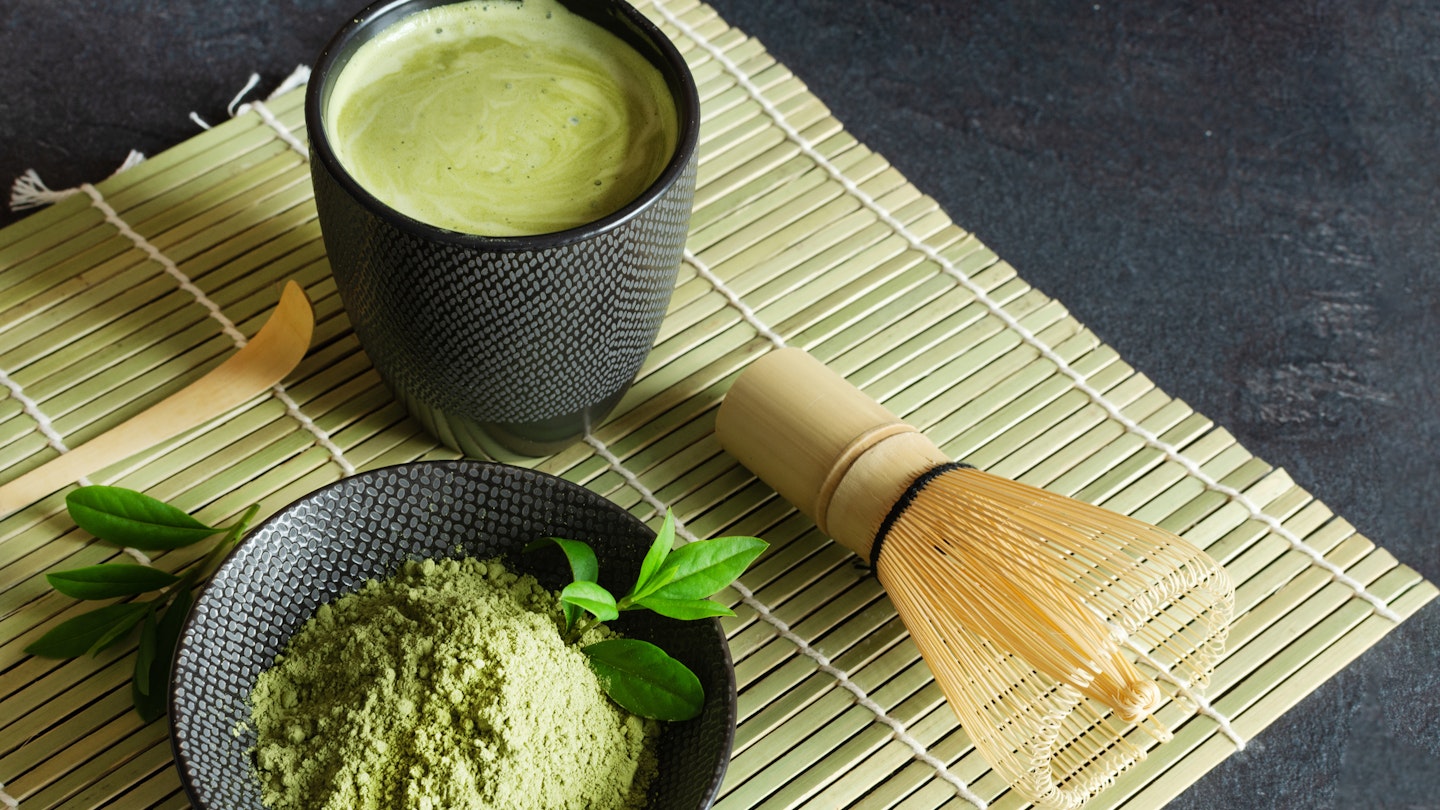With its unique earthy flavour characterised by a grassy undertone, this green beverage has been rapidly rising in popularity among seasoned tea drinkers and coffee enthusiasts alike. The reasons for this range from the many health benefits of matcha tea, its versatility to be brewed into various hot and cold drinks and people actively looking for caffeine alternatives and discovering matcha tea.
So as far as teas go, matcha is definitely having a moment and on National Tea Day which falls on 21st April this year, we spoke to various tea experts –Jane Pettigrew, tea specialist and course director at the UK Tea Academy, Sian Rumsey from The Tea Makers of London and Sam Holborn from Eteaket, both distinguished tea brands. Their views helped to gather more insight on what makes matcha good for you, the health properties of matcha and how to brew it into your own beverages and foods.
What is matcha?
Sourced from a tea plant known as Camellia sinensis and traditionally cultivated in the Kyoto and Nishio regions of Japan, matcha is obtained when steamed and dried Tencha leaves are ground into a fine powder. When brewed into a tea, matcha has a rich earthy flavour with a mellow sweet and grassy undertone.
If you have been reading up on matcha, you would have come across the term ‘ceremonial grade matcha’ and Sam Holborn from Eteaket, a brand that aims to bring ethically sourced tea to its customers, explains how it is different from regular matcha.
“The more premium ceremonial grade matcha have the vines removed from the leaves before using the traditional method of stone grinding them into powder to achieve the fine consistency and fresh light flavour. Due to this, unlike other tea, drinkers are consuming the entire leaf as opposed to the steeped liquor which really amps up the amount of nutritional value that is being absorbed.”
How is matcha different from other teas?
Sian Rumsey from The Tea Makers of London who sell transparently traded, estate grown tea sheds light on how matcha is different from other green teas due to the way it is processed.
“The tea bushes are covered in the last 20 days before the early spring harvest to limit sunlight. This process, known as ‘shading’, slows down growth, pushes the bushes to produce high levels of chlorophyll and causes an escalation in the production of healthy amino acids.”
“The leaves are then steamed, halting oxidation, and locking in matcha’s unique vegetal characteristics and vibrancy. After this, the leaves are graded, destemmed, and deveined before being left to dry and then stone-ground to a fine powder in granite stone mills,” he added.
Benefits of matcha tea
As a brew that gained global attention due to matcha’s health properties, if you are wondering why is matcha good for you, Jane Pettigrew, a tea specialist and course director at the UK Tea Academy lays out the power-packed constituents of matcha that makes it a highly beneficial beverage.

“Matcha contains three very important ingredients that are good for human health, the first being polyphenols, plant chemicals that act as antioxidants in the body. They are useful in protecting us against certain age-related diseases such as some cancers, heart and circulatory problems, strokes and thromboses.”
"When we drink a normal cup of tea which is steeped in hot water, a certain amount of the polyphenols is infused from the leaves into the water. However, when we drink matcha, we actually ingest the powdered leaves and therefore taking a much stronger concentration of the polyphenols into our bodies,” she adds.
The second ingredient is caffeine which keeps us awake, focused and able to concentrate. The third is L-theanine, an amino acid that keeps us calm which is only found in three plants in the entire plant universe. So, although the caffeine acts as a stimulant, L-theanine helps to balance it out.
Benefits of matcha green tea for skin
The antioxidant properties of matcha also work wonders for your skin and since it is rich in chlorophyll, matcha powder is a great detoxifier when applied to the skin. Providing a deep cleanse while also reducing inflammation and breakouts, this face mask is sure to brighten up your skin. The detoxifying property of matcha also helps to increase blood circulation and reduce stretch marks and cellulite. It is also said to promote natural collagen production, thereby acting as a remedy for fine lines and slowing down the ageing process.
Expert approved matcha recipes
1. Matcha Smoothie recipe
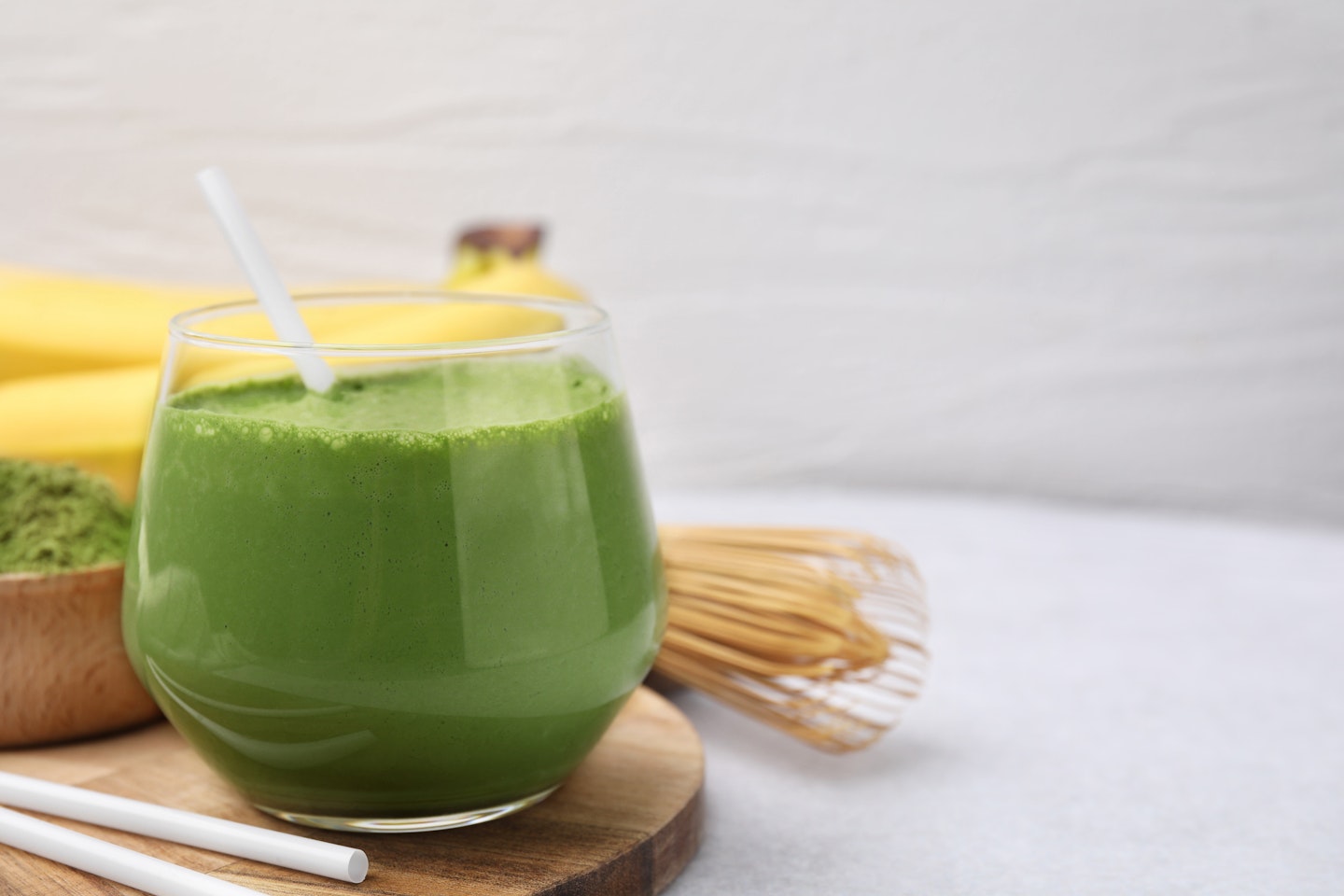
Jane Pettigrew swears by this recipe as it gives her a healthy dose of matcha while also serving as a filling drink. Blending 1 banana, oat or almond milk, some fresh root ginger, a little honey and a half teaspoonful of matcha powder in a food processor churns out a delicious drink you can have fresh or take it to go.
2. Iced Matcha recipe
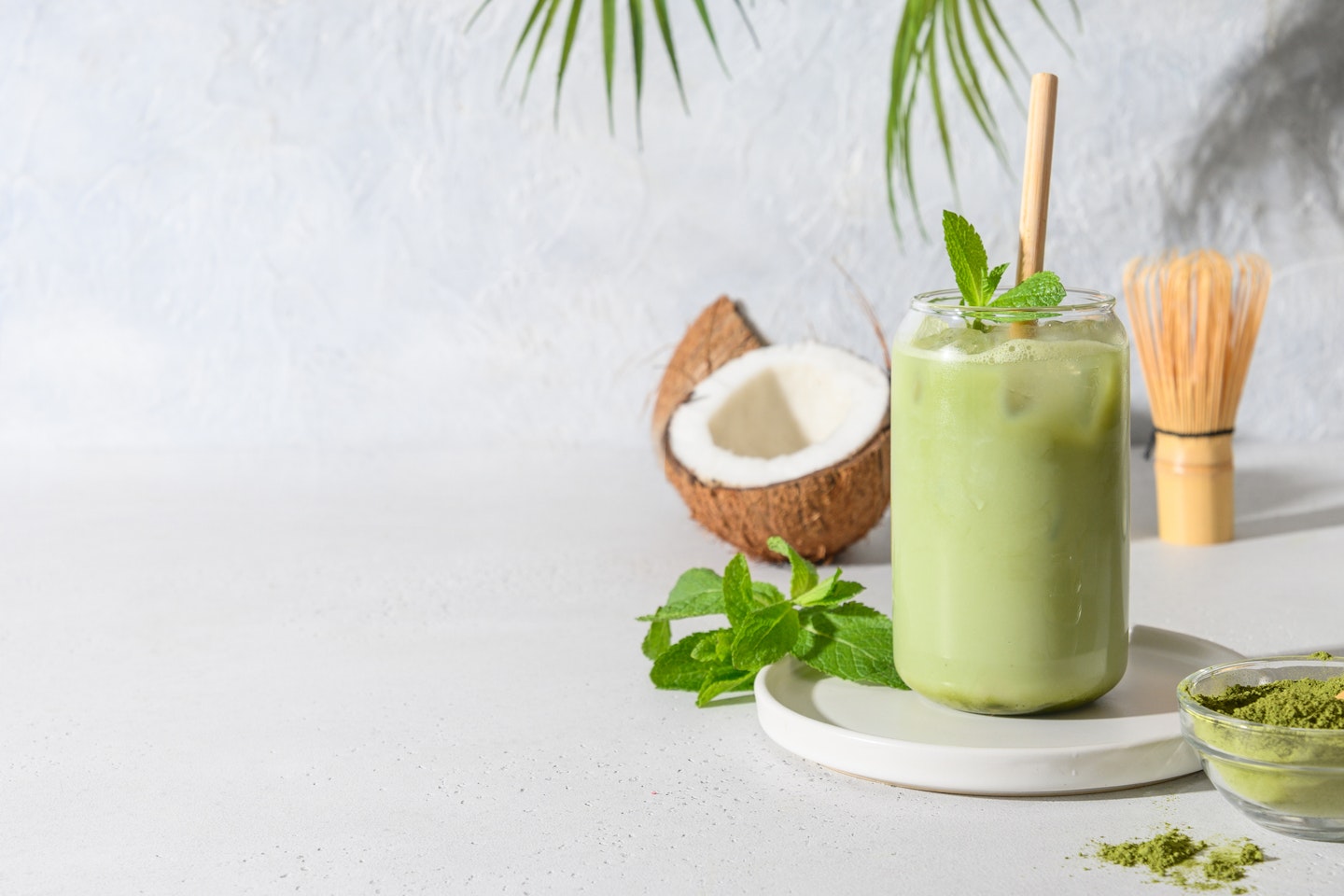
Sam Holborn shared Eteaket’s favourite iced matcha recipe and it is one with a coconut & rice milk blend sweetened with honey or agave syrup. After filling your glass with ice, top it up with 2/3rd plant milk, apple juice or any liquid of your choice. Pour over brewed matcha, stir & serve. In the cooler months, you can go for a hot latte with the same ingredients.
3. Matcha tea recipe
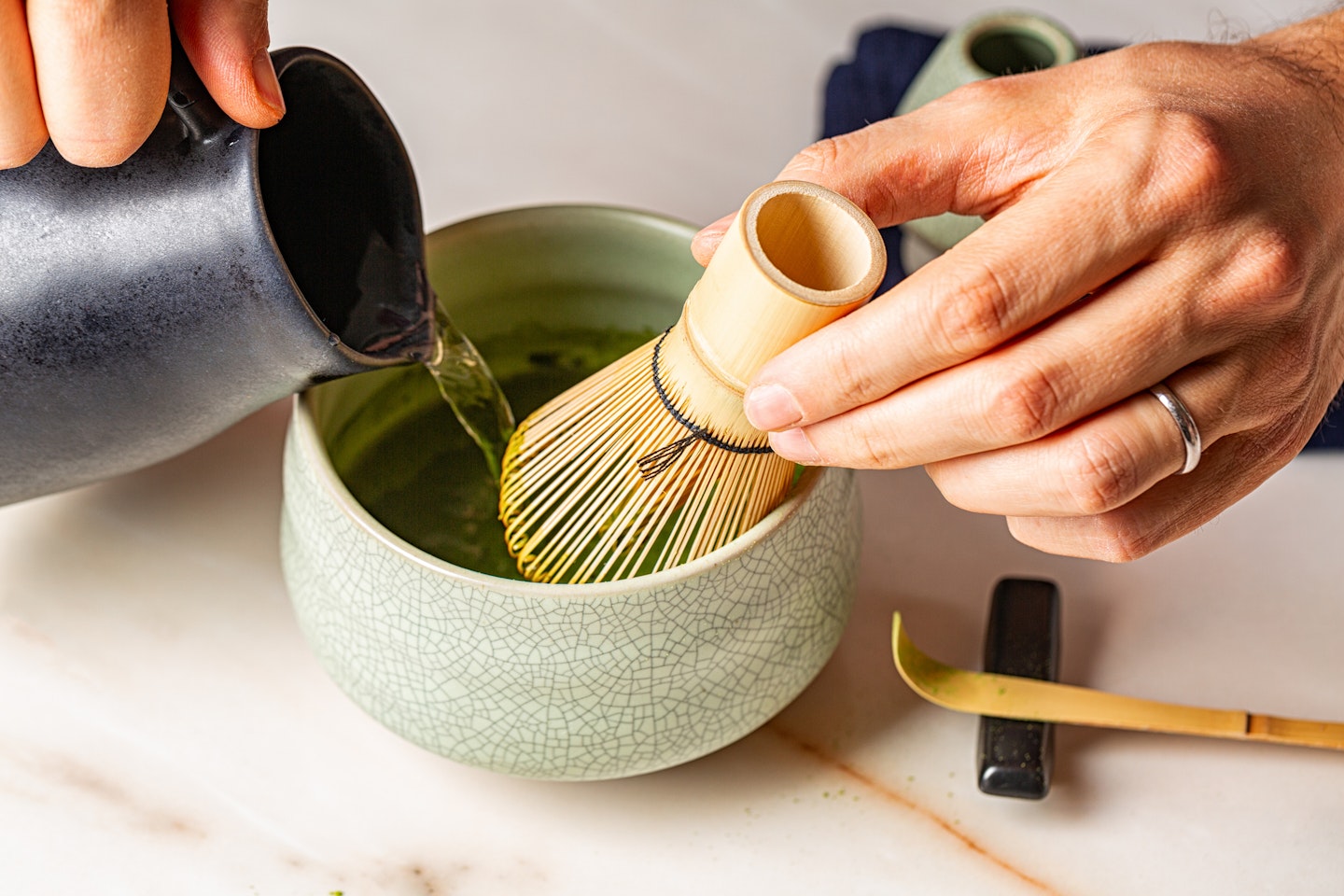
Sian Rumsey from The Tea Makers of London recommends matcha in its simplest form, just with hot water. For thin tea, we use approximately 1.75g of matcha powder with 75ml hot water. For thick tea, use 3.75g of matcha powder with 40ml of hot water. To prepare your matcha tea, place a small amount of sieved matcha powder into your matcha bowl using a bamboo spatula. Add 70C hot water, then whisk the mixture until the liquid has a uniform consistency. Finally, when enough foam has formed on the surface, beat at a medium speed to produce finer bubbles. And the matcha tea is ready to serve.
4. Vanilla & Chia Seed Matcha Pudding Recipe
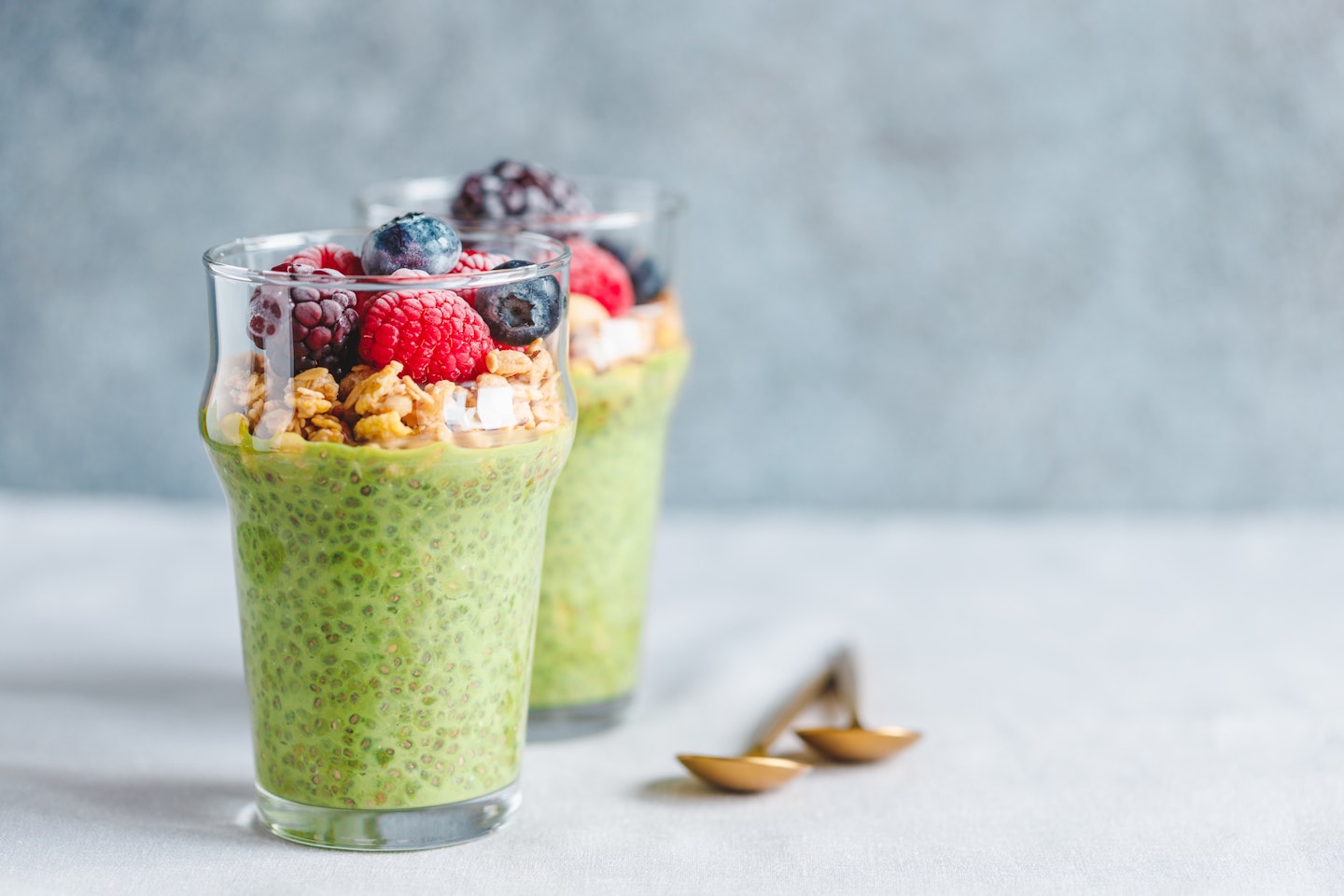
Another recipe from Eteaket, this is a healthy and tasty breakfast option. Prepare Matcha until light and frothy. The ingredients you will need are plant based milk, 3 tablespoons of chia seeds, Seeds of 1/2 vanilla pod, 2 tsp of honey and 4-6 fresh berries. Mix all of the ingredients in a serving glass and stir until combined. This needs to be refrigerated overnight and you can wake up to a very nourishing breakfast the next morning.
5. Matcha loaf cake recipe
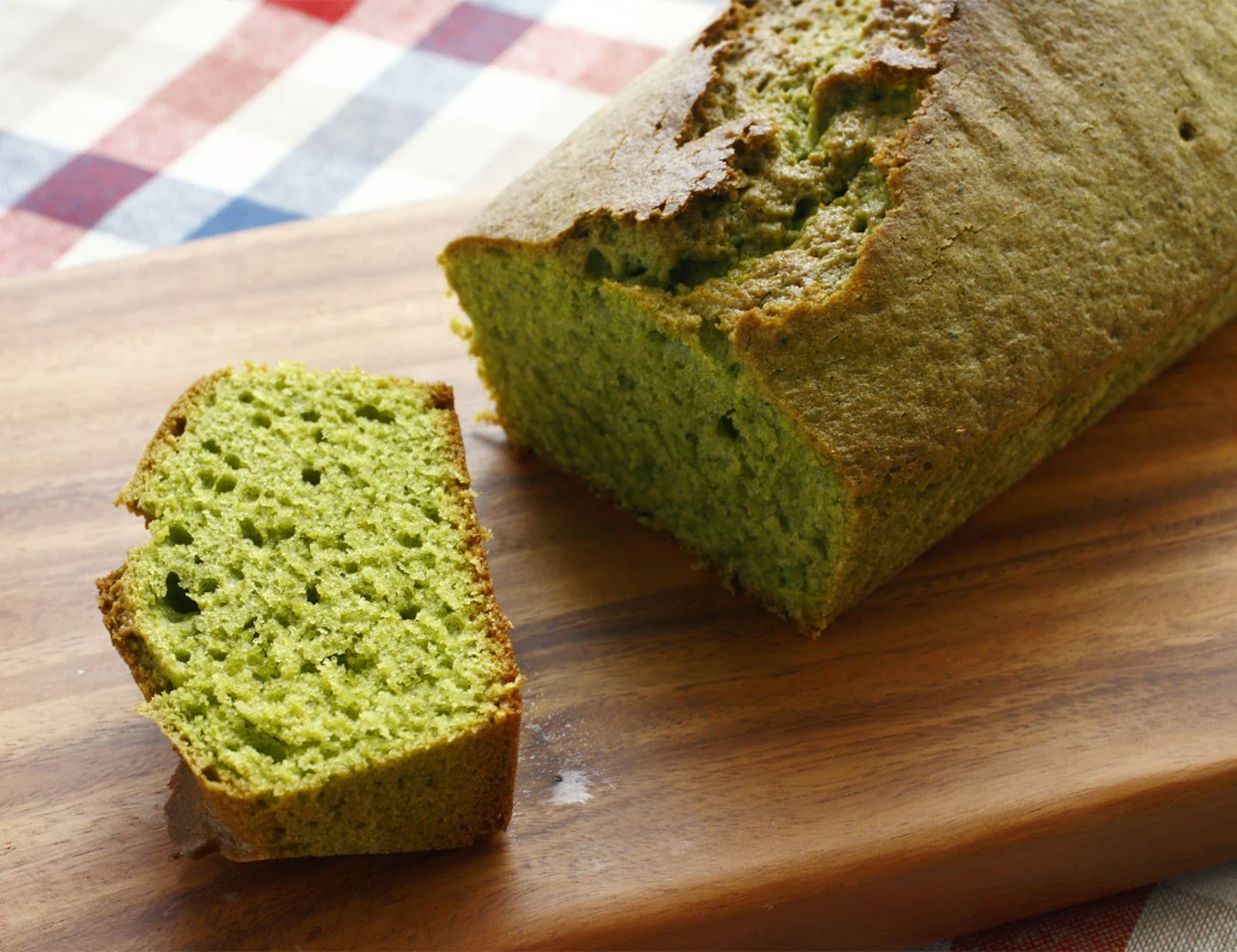
This recipe from Twinings will help you bake a simple matcha flavoured cake that pairs very well with afternoon tea and would also make for a fine light dessert. With the healthy antioxidant properties of matcha leaves, this cake can be a guilt-free pleasure.
6. Matcha butter cookies white chocolate drizzle
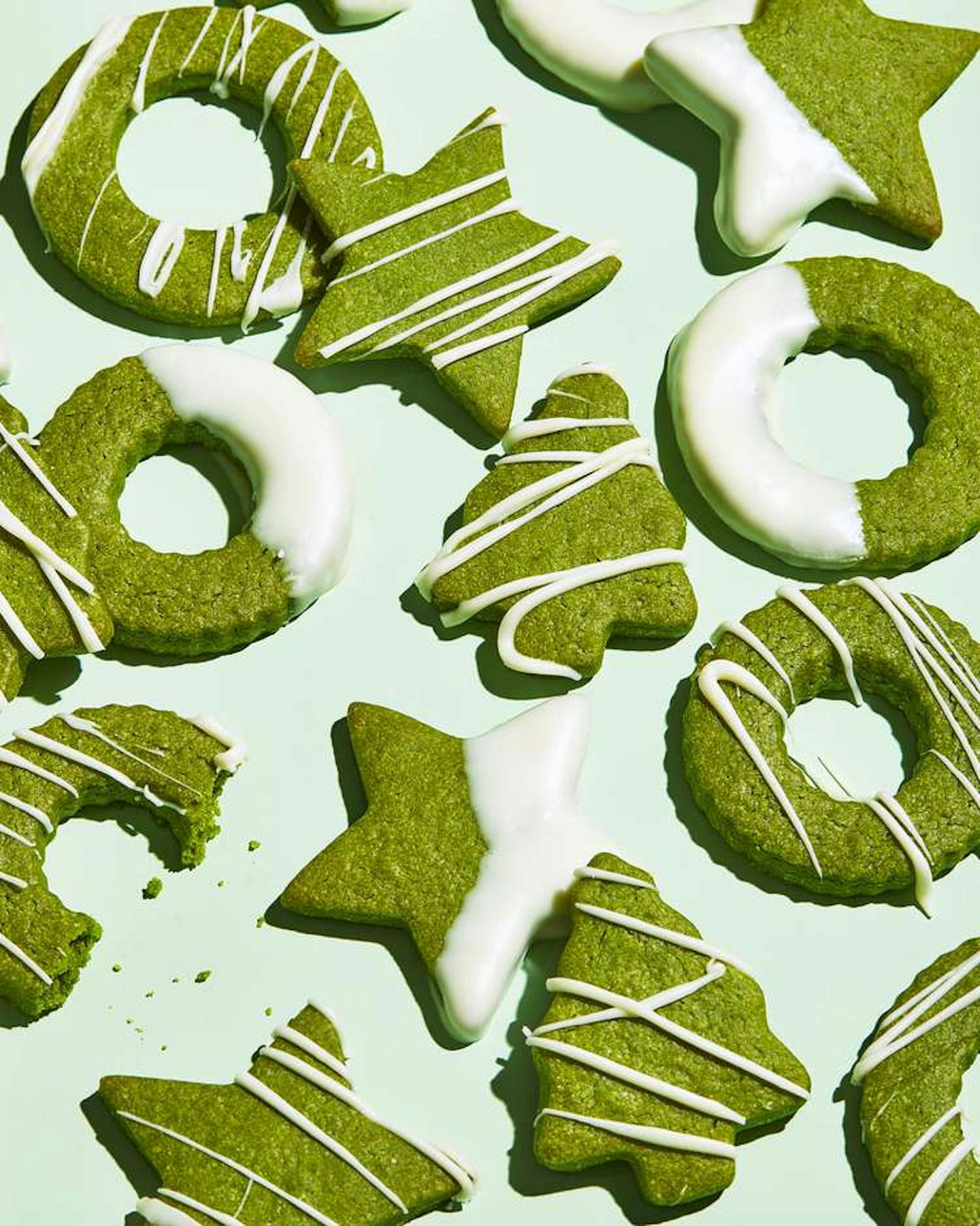
This matcha dessert recipe from Food&Wine will have you looking forward to the end of your meal. The buttery cookies that come with the earthy and refreshing flavour of matcha tea is complemented by the sweetness of the white chocolate drizzle, making it a perfect option for those who prefer their desserts with an optimum level of sweetness.
FAQs
Does matcha have caffeine?
Sam Holborn from Eteaket shares that matcha can be a healthier caffeine fix as it is packed full of antioxidants and the caffeine kick comes without the crash you find with coffee. Matcha, as opposed to coffee, contains a moderate amount of caffeine along with L-theanine, an amino acid known for promoting relaxation. This combination provides a smoother, more sustained energy release without the rollercoaster ride of coffee-induced highs and lows.
Is it good to drink matcha tea everyday?
While it is a healthier option, matcha still contains caffeine and therefore, moderation is advised. But 1-2 cups of matcha tea per day should be okay.
Akhila Thomas is a digital writer at Yours.co.uk. With a background in literature and journalism, she loves writing about art, culture, health, wellbeing, fashion and lifestyle. She is an avid reader, and a good plot can keep her up for hours. She also likes to travel and explore new cultures and cuisines.
